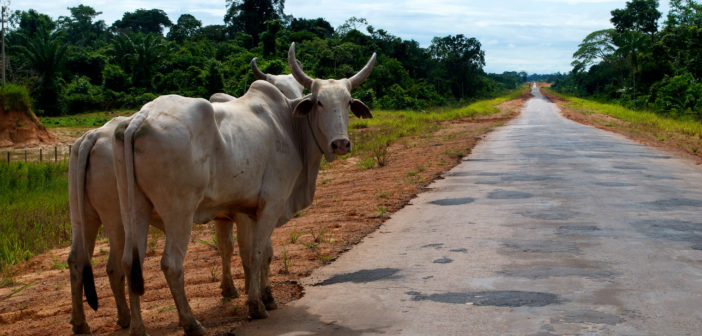The world is burning and so are countless innocent lives… literally. The environmental catastrophes predicted due to climate change are happening now. For instance, the wildfires in Greece and France and the flooding in Germany and Turkey. Yet the vast majority of people on the planet are carrying on with lifestyles that are causing environmental breakdown and tremendous suffering. What’s going to make us change?
Scientists agree that human activities are the cause of the environmental crisis that we are facing. Unfortunately, one of the main causes of climate change and environmental destruction is underestimated by almost everyone, that is animal agriculture (AA).
We need to properly acknowledge the part that animal agriculture plays in the environmental crisis.
In a recent article in the Journal of Ecological Society, Dr. Silesh Rao details the real environmental impact of AA, which he calculates to be the cause of up to 87% of greenhouse gas emissions. This figure is much higher than estimated by the United Nations’ Food and Agriculture Organisation (FAO), but takes into account the cumulative effect of the clearing of land for AA over the centuries, and the reduced ability of land destroyed for AA to control climate warming. Ignoring factors such as these in their calculations means that the IPCC (Intergovernmental Panel on Climate Change) and others are underestimating the impact of AA.
Another miscalculation relates to methane. Animal agriculture produces carbon dioxide, methane, nitrous oxide and black carbon. Methane is up to 80 times more potent a greenhouse gas than CO2, and nitrous oxide is up to 300 times more potent. Nitrous oxide also degrades the ozone layer. Yet these gases have a much shorter lifespan than CO2, so reducing them would bring a faster and more significant impact on global warming than by focusing on CO2 alone. Methane degrades into the less harmful CO2 after about 10-12 years, but the IPCC uses a timeframe of 100 years in its calculations. The IPCC has therefore badly underestimated the impact of methane and the global warming damage it causes each year compared to CO2.
It doesn’t help that the FAO, the source of the IPCC’s data, has formed an official partnership with the meat and dairy industry called the Livestock Environmental Assessment and Performance (LEAP) Partnership.
Nevertheless, the latest IPCC report released on August 9th, 2021 does show that scientists view reducing methane emissions as a necessary path of action. This has often been missed out of summaries of the report. Additionally, a leak from the next IPCC report, due out in March 2022, says more about animal agriculture, and states that plant-based diets can reduce greenhouse gas emissions by up to 50%.
However, greenhouse gas emissions are only one of the negative impacts of animal agriculture. AA is also a main cause of deforestation, desertification, habitat destruction, wildlife extinction, and ocean dead zones… all of which act upon each other and on the climate in a vicious cycle, contributing to the problem of global warming. These should all be taken into account when calculating greenhouse gas emissions.
I strongly feel that the scientific community, government institutions, businesses and news media must change their priorities, because concentrating solely on eliminating fossil fuel usage while ignoring animal agriculture will not be enough to halt global warming.
I myself am mainly addressing the Catholic Church and her institutions and organisations, in the hope that she will lead the world in the right direction. I have been campaigning for the Church to raise the status of the environment and of animals for decades, and getting absolutely nowhere until the Laudato Si Encyclical arrived. But animal agriculture and animal suffering are still low on her agenda. The Catholic Church and Catholic initiatives like Cafod and to a certain extent the Laudato Si Movement (previously Global Catholic Climate Movement) tend to ignore animal agriculture. Regarding divestment, they concentrate on calling for divestment from fossil fuels, but divestment from animal agriculture is essential, at least as important as divestment from fossil fuels. In fact, listening to the Encyclical Laudato Si’s message about an integrated approach, we should be calling for divestment from all unethical investments: those which are environmentally damaging, cruel (exploiting animals), harmful (tobacco, alcohol), enslaving of humans, financing the arms trade and so on.
We don’t have to wait for governments to act. As individuals we can choose to give up or eat less meat, dairy and fish – every meal counts. It is now easier to find non-meat options because supermarkets have recently increased their range of plant-based options, and have even started placing them next to the meat to make it easier for the consumer in their moment of choice. When we go to the supermarket, we can either choose to increase climate change, or choose to be part of the solution.
We are reaching tipping points where the effects of climate change become irreversible. To heal the planet, we have to end animal agriculture, including meat, dairy and fish farming and trawling. We have to transition to organic, arable farming, incorporating permaculture and wherever possible forest gardening. We can make a significant decrease in global warming if we immediately transition away from AA, starting the process of methane reduction and knock-on effects of reducing land, water and air pollution, habitat destruction, deforestation, desertification, loss of biodiversity and ocean death. That’s the good news in a miserably sad state of affairs.
Featured image: cows along the side of a road running through the Brazilian Amazon. Image credit CIFOR, CC BY-NC-ND 2.0.





